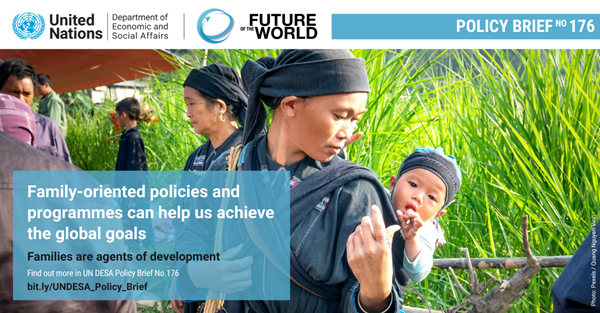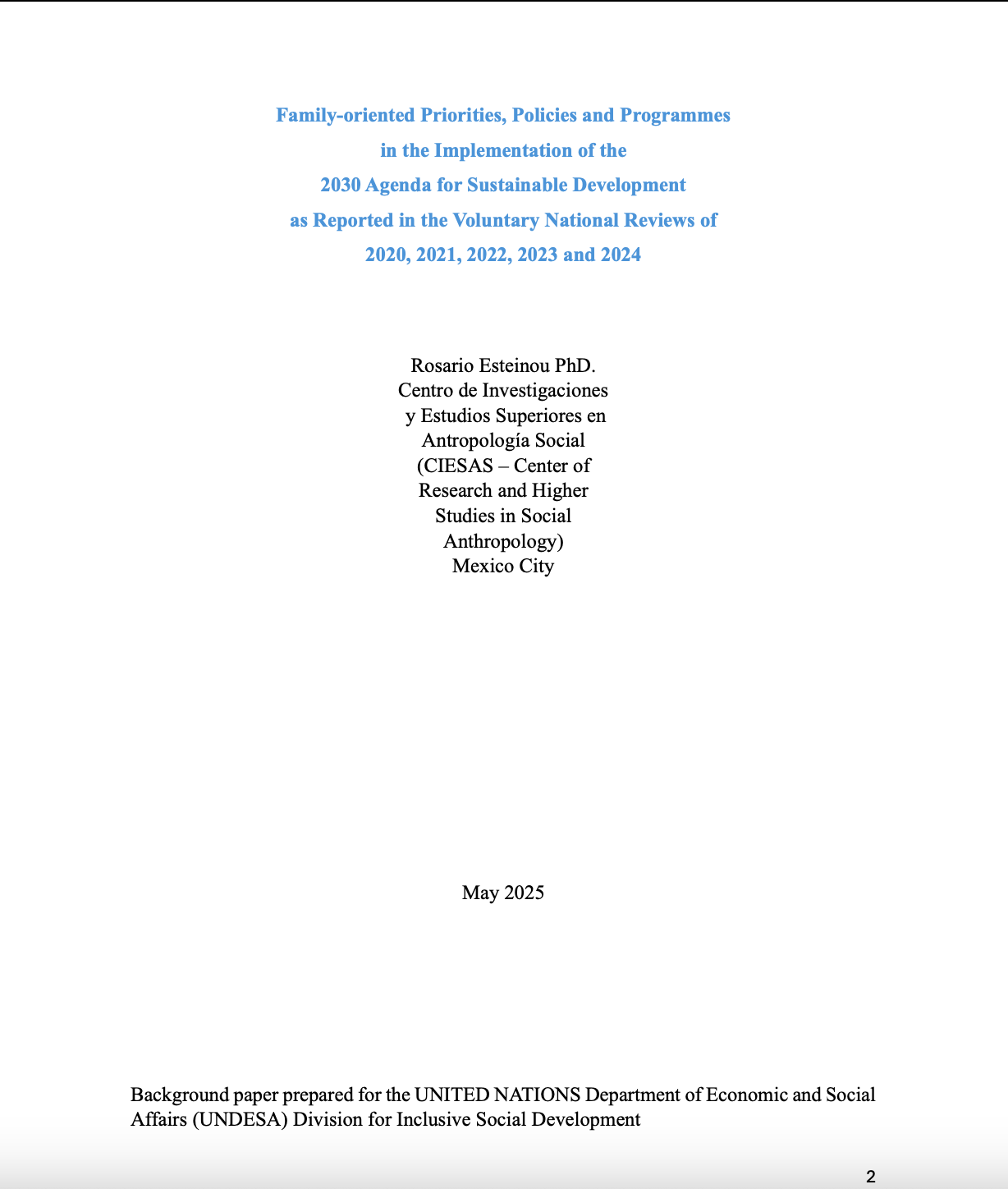Publications
Displaying 1 - 4 of 4
Policy Briefs |
This policy brief presents a global analysis of 171 Voluntary National Reviews (2020–2024) from 141 countries addressing core aspects of family well-being by focusing on policies related to: poverty reduction (SDG1), food security and nutrition (SDG2), health and well-being (SDG3), quality education (SDG4), and gender equality (SDG5). These VNRs demonstrate little and uneven progress in implementing family-oriented policies, compared to the 2016–2019 VNRs. There is modest positive progress in reducing poverty, improving maternal and child mortality, and increasing access to water and sanitation services. However, family-oriented policies addressing extreme poverty and food insecurity have…
Publication |
The 2025 VNR Synthesis Report prepared by UN DESA’s Division for Inclusive Social Development examines how family-oriented policies have contributed to the implementation of the Sustainable Development Goals (SDGs), based on 171 Voluntary National Reviews submitted by 141 countries between 2020 and 2024. It adopts a multidimensional analytical framework that integrates socioecological models, welfare regimes, redistributive approaches, social investment, and gender responsiveness to assess family wellbeing across key SDG areas such as poverty reduction, health, education, gender equality, and urban development. The report highlights that while families remain central to development efforts…
UN General Assembly Reports on Social Development |
As part of the preparations for and observance of the thirtieth anniversary of the International Year of the Family, the report is focused on the impact of climate change on the well-being of families, highlighting challenges relating to food and water scarcity, worsening physical and mental health, increased intrafamilial violence and child marriage.
UN General Assembly Reports on Social Development |
As part of the preparations for and observance of the thirtieth anniversary of the International Year of the Family, the report is focused on the impact of climate change on the well-being of families, highlighting challenges relating to food and water scarcity, worsening physical and mental health, increased intrafamilial violence and child marriage.
 Welcome to the United Nations
Welcome to the United Nations

